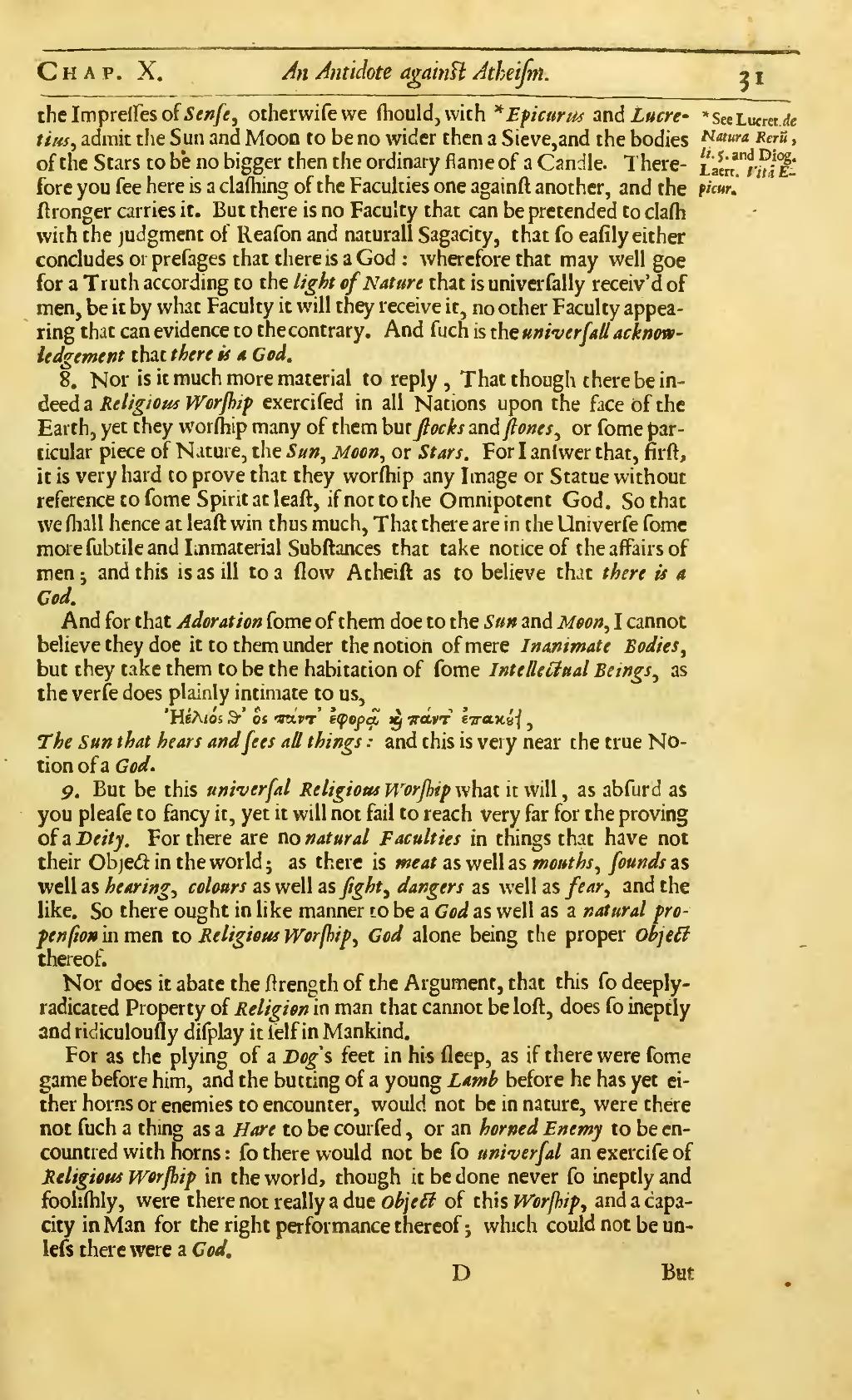the Impresses of Sense, otherwise we should, with **See Lucret. de Natura Rerū, li. 5. and Diog. Laert. Vitā Epicur. Epicurius, and Lucretius, admit the Sun and Moon to be no wider then a Sieve, and the bodies of the Stars to be no bigger then the ordinary flame of a Candle. Therefore you see here is a dashing of the Faculties one against another, and the stronger carries it. But there is no Faculty that can be pretended to clash with the judgment of reason and naturall Sagacity, that so easily either concludes or presages that there is a God: wherefore that may well goe for a Truth according to the light of Nature that is universally receiv'd of men, be it by what Faculty it will they receive it, no other Faculty appearing that can evidence to the contrary. And such is the universall acknowledgement that there it a God.
8. Nor is it much more material to reply, That though there be indeed a Religious Worship exercised in all Nations upon the face of the Earth, yet they worship many of them stocks and stones, or some particular piece of Nature, the Sun, Moon, or Stars. For I answer that, first, it is very hard to prove that they worship any Image or Statue without reference to some Spirit at least, if not to the Omnipotent God. So that we shall hence at least win thus much, That there are in the Universe some more subtile and Immaterial Substances that take notice of the affairs of men; and this is as ill to a slow Atheist as to believe that there is a God.
And for that Adoration some of them doe to the Sun and Moon, I cannot believe they doe it to them under the notion of mere Inanimate Bodies, but they take them to be the habitation of some Intellectual Beings, as the verse does plainly intimate to us, The Sun that hears and sees all things: and this is very near the true Notion of a God.9. But be this universal Religious Worship what it will, as absurd as you please to fancy it, yet it will not fail to reach very far for the proving of a Deity. For there are no natural Faculties in things that have not their Object in the world; as there is meat as well as mouths, sounds as well as hearing, colours as well as sight, dangers as well as fear, and the like. So there ought in like manner to be a God as well as a natural propension in men to Religious Worship, God alone being the proper Object thereof.
Nor does it abate the strength of the Argument, that this so deeply-radicated Property of Religion in man that cannot be lost, does so ineptly and ridiculously display it self in Mankind.
For as the plying of a Dog's feet in his sleep, as if there were some game before him, and the butting of a young Lamb before he has yet either horns or enemies to encounter, would not be in nature, were there not such a thing as a Hare to be coursed, or an horned Enemy to be encountred with horns: so there would not be so universal an exercise of Religious Worship in the world, though it be done never so ineptly and foolishly, were there not really a due Object, of this Worship, and a capacity in Man for the right performance thereof; which could not be unless there were a God.

